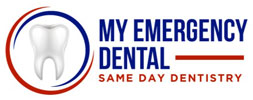How can genetic factors affect oral health?
Predisposition to Tooth Decay
Significant genetic influences determine an individual’s susceptibility to various oral health conditions. Some individuals may be predisposed to dental issues such as tooth decay, gum disease, and malocclusions (misalignment of the teeth and mandible) due to inherited characteristics. These characteristics can include dental enamel thickness, immune system strength, and the shape and size of the jaw and teeth.
While you cannot alter your genetic makeup, you can take the following measures to maintain excellent oral health:
● Regular dental visits. Schedule routine dental examinations to monitor your oral health and detect potential problems early on. Your dentist can make recommendations tailored to your genetic predispositions.
● Proper oral hygiene. Practice excellent oral hygiene by brushing your teeth with fluoride toothpaste at least twice daily, flossing daily, and using mouthwash. This assists in the removal of plaque, the prevention of cavities, and the reduction of the risk of periodontal disease.
● Healthy diet. Include a variety of fruits, vegetables, lean proteins, and dairy products in your diet. Consuming excessive amounts of sweetened foods and drinks can contribute to tooth decay.
● Quit smoking. Quitting smoking or using tobacco products is essential for oral health if you smoke or use tobacco products. The risk of periodontal disease, oral malignancy, and other dental issues are increased by smoking.
● Orthodontic therapy. Consult an orthodontist if misaligned teeth or jaw irregularities affect oral health. They can provide orthodontic treatment options such as braces and clear aligners to correct misalignment and enhance oral health.
● Genetic analysis. In certain instances, genetic testing can provide insightful information about your oral health hazards. Consult your dentist or a genetic counselor to determine whether or not this option is available and appropriate for you.
Genes Can Make a Person Prone to Oral Health Problems
Genes shape so much of what makes a person; it dictates the shape of an individual’s jaws and determines the alignment of their teeth. Even the color and completion of teeth can be affected by genetics through thin enamel development and risks to anodontia or hypodontia. Ultimately, genes can make a person more or less prone to specific oral health problems. Still, the habits practiced for oral health maintenance, individual lifestyles, and environmental factors have a more significant influence on overall oral health.
Individuals with straight teeth can later develop crookedness due to poor nutrition, teeth grinding, or jaw clenching, causing teeth to loosen, shift, and even fall out. Straight teeth during infancy can also get misaligned from excessive thumb sucking or tongue thrusting.
Similarly, individuals with white teeth can also experience discoloration through gradual tooth enamel deterioration from unreasonable fluoride application and consuming colored food, such as coffee or tea. Genetic factors can contribute to the risk of periodontal diseases, gum disease, and tooth decay, primarily resulting from poor dental hygiene, lifestyle choices, and external factors. Bacteria and plaque buildup, which lead to these oral health issues, often result from inadequate brushing techniques, smoking, consuming sugary foods, and even exposure to secondhand smoke.
To effectively manage the potential impact of genetics on oral health, individuals should prioritize long-term oral hygiene practices. Seeking continuous guidance from qualified dental professionals is crucial in developing personalized treatment plans and proper oral health habits and dietary patterns. By combining genetic awareness with proactive oral care, individuals can mitigate potential risks, maintain optimal oral health, and improve their overall quality of life.
Know Your Family History
Genetics can determine the alignment of your teeth and whether you will have cavities. No matter how much you practice good dental hygiene, genetic factors will affect your gums and teeth beyond your control. Your saliva’s makeup and amount can determine your susceptibility to developing cavities. Your saliva does not just help you with chewing food, but it performs several oral health-protecting duties. It’s important to remember your family history and know what you inherited. Consult your dentist to determine the best course of treatment for your existing dental issues considering your family’s dental health history.
This is a crowdsourced article. Contributors' statements do not necessarily reflect the opinion of this website, other people, businesses, or other contributors.



